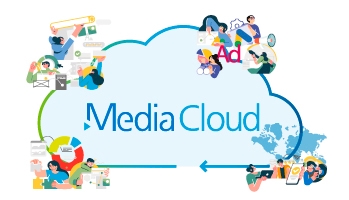The battle for control of the news

At a time when social networks are accelerating their influence as a source of information, mobile devices become a major player, and online video is establishing itself as a future trend, big technology companies such as Google, Apple or Facebook are now immersed in a new battle that will decide the future of news consumption, especially in mobile phones.
This is, of course, not something that must surprise, as this type of fight has already occurred in the past. We all remember how Apple itself, some years ago, launched Newstand in an attempt to monopolise informative and editorial content, in a similar way as Facebook had done with Paper.
We are witnessing, therefore, a new period in this fight, in which Internet giants have been in a hurry to launch their most advanced ideas and developments into the market.
Among the initiatives that can be found in the current scenario is the one from Facebook, known as Instant Articles, which includes the collaboration of important media players such as The Guardian or The New York Times, in which a part of the content from these media companies will be published directly on Facebook, without the need for the user to abandon the platform, with faster loading times, and with formats that enhance user experience. The tool is currently limited to iPhone users that access the Facebook app, but is expected to be available for Android soon.
On the other side, Apple has recently presented a proposal known as Apple News, a free app for iOS9 that will enable access to news and updates based on the interests of the user and that has several attractive features both for users and media companies (for example, a more attractive visualisation with personalised fonts, videos, galleries, animations). The platform data, say its creators, will not be shared by Apple with third parties.
And last of all, the giant Google, that as launched its own News Lab as a counterweight for the platforms announced by Apple and Facebook, a tool with which Google intends to work alongside journalists and entrepreneurs to build the future of media. Their idea spans from tutorials to better understand how the internet works to explanations on how more specific Google products work, data to assist in finding information sources, and programs that are centred around the future of media.
This is, without doubt, a long term race for these large companies, something like a marathon in which the media companies also participate and where nobody can lose pace, as there are so many things at stake: control of digital audiences, projection of the image of media companies, etc.
It is not about media companies giving in and leaving news distribution in the hands of technology giants. I don’t think this is about neglecting these new distribution channels either, as they are, in a way, the replacement of the old news stands. More likely, it will represent a new path to be taken into account in the digital strategy of each company.
Let’s not forget that media companies have an advantage over the technology giants in that they are the ones that generate quality content, the key which enables attracting, retaining and gaining the loyalty of the reader, and also the key to opening the doors to advertising.
I will conclude this blog post encouraging media companies to continue to launch initiatives in this digital ecosystem, to not give up, to research and test out independent alternative products that will enable them to get a share of this digital market.




